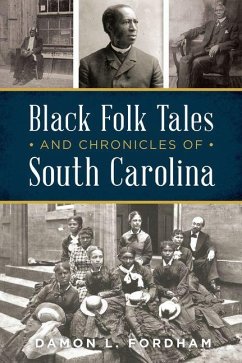
Cajun Country Chronicles
Versandkostenfrei!
Versandfertig in über 4 Wochen
19,99 €
inkl. MwSt.

PAYBACK Punkte
10 °P sammeln!
Author William Thibodeaux shares a bevy of Cajun Country tales . From shocking one offs to delightful immersion into the quotidian lives of Cajuns long deceased, we find ourselves with a satisfying grab bag of Cajun history. A murder becomes a case that winds its all the way to the U.S. Supreme Court. A feud erupts into a shootout on election day 1924 with three dead and four injured. One ordinary Cajun is torn between two passion - photography and railroading. Another young man rises to the rank of postmaster. Cajun music is reborn in these pages, and the university in Lafayette is founded. T...
Author William Thibodeaux shares a bevy of Cajun Country tales . From shocking one offs to delightful immersion into the quotidian lives of Cajuns long deceased, we find ourselves with a satisfying grab bag of Cajun history. A murder becomes a case that winds its all the way to the U.S. Supreme Court. A feud erupts into a shootout on election day 1924 with three dead and four injured. One ordinary Cajun is torn between two passion - photography and railroading. Another young man rises to the rank of postmaster. Cajun music is reborn in these pages, and the university in Lafayette is founded. The legality of the Louisiana Purchase comes under scrutiny here, and communities lost to the great floor of 1927 are remembered, as is the once unthinkable banning of the French language on public-school grounds. During the yellow fever epidemic, one town tries to save itself by banning all inbound trains from NOLA. Another city in the region is befallen by a curse placed on its boundaries.












